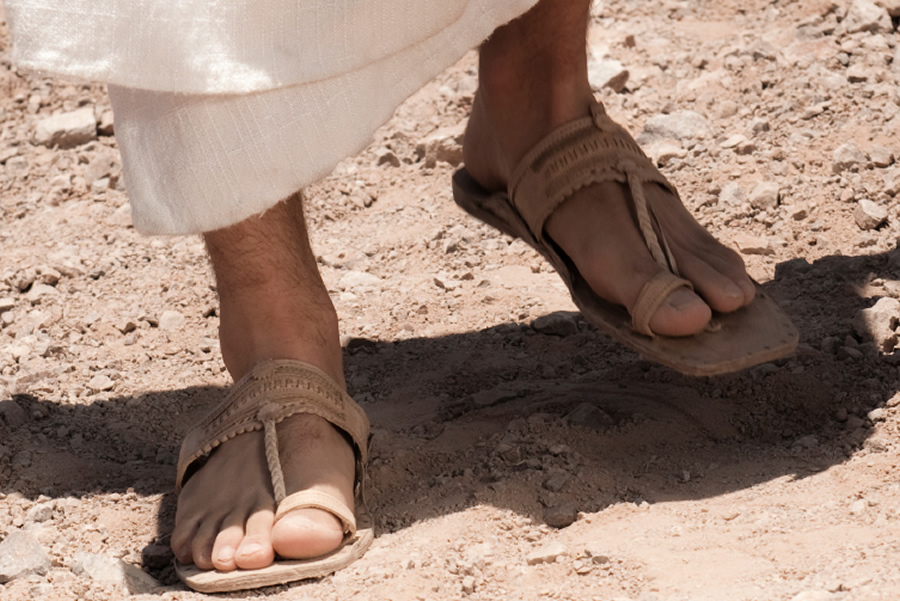Blog & Pastor Letters

Sixteenth Sunday in Ordinary Time – July 21, 2024
07-21-2024Weekly ReflectionDeacon Steven D. GreydanusHave you ever felt like a sheep without a shepherd?
Have you ever felt lost or alone in your faith? Abandoned, even? Do you know the feeling of going to Mass, perhaps at an unfamiliar parish — or perhaps not — and bracing yourself for what you might experience? Ever had a particularly bad experience with a priest, or looked at problems in the Church, or our nation, or the world, and wondered, “Why don’t the bishops do or say something?”
READ MORE
Fifteenth Sunday in Ordinary Time – July 14, 2024
07-14-2024Weekly ReflectionDeacon Steven D. Greydanus“A plan for the fullness of times, to sum up all things in Christ, in heaven and on earth.” This amazing sentence in the second reading, from St. Paul’s letter to the Ephesians, is the climax to a magnificent passage that comes up in the Sunday Mass readings just once every three years — today being that day — though this passage is prayed by priests, deacons, and religious typically every week in the Divine Office, during Monday Evening Prayer! So it’s a key passage in the heart and mind of the Church, even though we hear it so seldom at Sunday Mass.
READ MORE
Fourteenth Sunday in Ordinary Time – July 7, 2024
07-07-2024Weekly ReflectionDeacon Steven D. GreydanusThe Catechism of the Catholic Church, in the section on the First Commandment, lists atheism as “a sin against the virtue of religion” — not just a false belief or an error, but a sin. Now, the Catechism is quick to acknowledge that culpability in particular atheists “can be significantly diminished in virtue of the intentions and the circumstances.” In praying for “those who do not acknowledge God” in the Solemn Intercessions on Good Friday, the Church asks that, in “following what is right in sincerity of heart, they may find the way to God himself.” So disbelieving in God’s existence doesn’t automatically mean that someone isn’t sincere in seeking to follow what is right and true.
READ MORE
Thirteenth Sunday in Ordinary Time - June 30, 2024
06-30-2024Weekly ReflectionFr. Madison HayesToday, as we reflect on the intertwining paths of philosophy and faith, we are reminded that wisdom, the pursuit of profound understanding, takes different forms. The Ancient Greeks embarked on an autonomous quest for wisdom, seeking answers to fundamental questions about freedom, the soul, and the nature of a person. On the other hand, the Hebrew perspective illuminates that true wisdom is a gift from God, revealed and received, not merely grasped at through human endeavors.
READ MORE
Twelfth Sunday in Ordinary Time - June 23, 2024
06-23-2024Weekly ReflectionFr. Madison HayesToday, our reflections turn to the profound wisdom contained in the book of Job, a literary masterpiece that stands unique within the sacred canon of Scripture. Job’s narrative takes a dramatic approach to the fundamental questions of our existence, unraveling the mysteries of the relationship between God and humanity, good and evil, reward and punishment.
READ MORE
Eleventh Sunday in Ordinary Time
06-16-2024Weekly ReflectionFr. Madison HayesOn this Eleventh Sunday in Ordinary Time, we reflect on the profound messages of hope and resilience that scripture offers us, drawing particularly from the insights of the prophet Ezekiel and the teachings of St. Paul.
READ MORE
Tenth Sunday in Ordinary Time
06-09-2024Weekly ReflectionFr. Madison HayesIn today’s readings, we are reminded of the profound consequences of the first disobedience in the Garden of Eden. Adam and Eve, lured by the serpent’s cunning, freely chose to eat from the tree that God had forbidden. Their excuses and evasion of responsibility reveal the human tendency to shirk accountability, yet both ultimately admit, “So I ate it.”
READ MORE
The Most Holy Body & Blood of Christ
06-02-2024Weekly ReflectionFr. Madison HayesAs we gather today to celebrate the solemnity of Corpus Christi, the Most Holy Body and Blood of Christ, the readings offer a profound backdrop to the significance of this liturgical feast. The primitive scene from the Book of Exodus paints a vivid picture of a rough-hewn altar, twelve stone pillars, and young men from the tribes of Israel sacrificing young bulls. The sacrificial scene becomes a tangible prefiguration of the Eucharist.
READ MORE